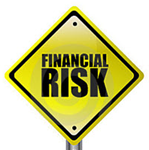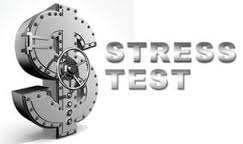Head on over to our Facebook page to enter our Trivia Contest! You will be entered to win a $15 gift card of your choice from Starbucks, Amazon or iTunes (iTunes is US only)!
If you do not have Facebook, you can enter right here in our forum. Just answer the following questions:
(Note: All participants will be entered into our random drawing regardless of correct or incorrect answers. There will be two winners drawn at random.)
Question 1:

Last week a widely anticipated report was published. The report contains the following passage about risk management, except we redacted the studied issue with "hazard:"
"Risk management is easier for nations, companies, and even individuals when the likelihood and consequences of possible events are readily understood. Risk management becomes much more challenging when the stakes are higher or when uncertainty is greater. We know a great deal about the impacts of [hazard] that have already occurred, and we understand a great deal about expected impacts in the future. But many uncertainties remain, and will persist. In particular, [specific hazard] depend on societal choices, policies, and technology advancements not yet made, and [hazard] impacts depend on both the amount of [hazard] that occurs and the effectiveness of development in reducing exposure and vulnerability. The real challenge of dealing effectively with [hazard] is recognizing the value of wise and timely decisions in a setting where complete knowledge is impossible. This is the essence of risk management."
To which hazard does this report refer?
a. Unemployment
b. Fiscal crises in key economies
c. Climate change
d. Terrorism
Question 2:

Chris Donahue (GARP's Research Center Head) recently blogged at GARP's "The Daily Limit" about a country that has seen FRM registrations grow by over 800% since 2006, boosting this country into the top three countries, in terms of number of FRM registrations. Along with the United States, which two countries are in the top three; i.e., with the highest number of FRM registrations?
a. China and India
b. Brazil and Mexico
c. Russia and Germany
d. Japan and Singapore
Question 3:

Michael Lewis' book, Flash Boys: A Wall Street Revolt, preoccupied the financial press all week. Many articles were written to explain, criticize, defend or (in many cases) trivialize high-frequency trading (HFT). Here is an excerpt:
"Now the market as it appeared on [Brad's] screens was an illusion. This was a big problem. Brad’s main role as a trader was to sit between investors who wanted to buy and sell big amounts of stock and the public markets, where the volumes were smaller. Some investor might want to sell a 3-million-share block of Intel; the markets would only show demand for 1 million shares; Brad would buy the entire block, sell off a million shares of it instantly, and then work artfully over the next few hours to unload the other 2 million shares. If he didn’t know what the markets actually were, he couldn’t price the larger block. He had been supplying liquidity to the market; now, whatever was happening on his screens was reducing his willingness to do it. Unable to judge market risks, he was less happy to take them. By June 2007 the problem had grown too big to ignore. An electronics company in Singapore called Flextronics announced its intention to buy a smaller rival, Solectron, for a bit less than $ 4 a share. A big investor called Brad and said he wanted to sell 5 million shares of Solectron. The public stock markets—the New York Stock Exchange (NYSE) and Nasdaq—showed the current market. Say it was 3.70– 3.75, which is to say you could sell Solectron for $ 3.70 a share or buy it for $ 3.75. The problem was that, at those prices, only a million shares were bid for and offered. The big investor who wished to sell 5 million shares of Solectron called Brad because he wanted Brad to take the risk on the other 4 million shares. And so Brad bought the shares at $ 3.65, slightly below the price quoted in the public markets. But when he turned to the public markets— the markets on his trading screens— the share price instantly moved . Almost as if the market had read his mind. Instead of selling a million shares at $ 3.70, as he’d assumed he could do, he sold a few hundred thousand and trigged a minicollapse in the price of Solectron. It was as if someone knew what he was trying to do and was reacting to his desire to sell before he had fully expressed it. By the time he was done selling all 5 million shares, at prices far below $ 3.70, he had lost a small fortune."
In the FRM risk typology, which risk does this most nearly resemble?
a. Constant (bid-ask) spread
b. Exogenous liquidity risk
c. Endogenous liquidity risk
d. Liquidity at risk (LaR)
Question 4:

The Federal Reserve released the results of their Comprehensive Capital Analysis and Review (CCAR) and Dodd-Frank Act (DFA) stress tests. The CCAR is an "intensive assessment" of the capital adequacy of large U.S. bank holding companies (BHCs); the DFA stress tests are a set of forward-looking exercises intended to ensure institutions have sufficient capital to absorb losses and support operations during adverse economic conditions so that they do not pose systemic risks. In a rather high-profile failure, Citigroup's capital plan was rejected. The stress test includes two scenarios ("adverse" and "severely adverse") and trajectories for 28 variables. These include 16 variables that capture economic activity, asset prices, and interest rates in the U.S. economy and financial markets and three variables in each of four countries/country blocks (Euro, Developing Asia, Japan, and U.K.). Each of the following is a variable in the stress tests, EXCEPT which is NOT a variable?
a. Nominal GDP growth
b. Consumer Confidence
c. House Price Index
d. Market Volatility Index (VIX)
Question 5:

On LinkedIn, Michael Dell, Founder and CEO of Dell, argued that something "holds the promise for significantly advancing society and economic growth on a global scale." What does he consider to be "arguably the most important natural resource of this century?"
a. Cheap food
b. Alternative energy
c. Mobile computing
d. Big Data
If you do not have Facebook, you can enter right here in our forum. Just answer the following questions:
(Note: All participants will be entered into our random drawing regardless of correct or incorrect answers. There will be two winners drawn at random.)
Question 1:

Last week a widely anticipated report was published. The report contains the following passage about risk management, except we redacted the studied issue with "hazard:"
"Risk management is easier for nations, companies, and even individuals when the likelihood and consequences of possible events are readily understood. Risk management becomes much more challenging when the stakes are higher or when uncertainty is greater. We know a great deal about the impacts of [hazard] that have already occurred, and we understand a great deal about expected impacts in the future. But many uncertainties remain, and will persist. In particular, [specific hazard] depend on societal choices, policies, and technology advancements not yet made, and [hazard] impacts depend on both the amount of [hazard] that occurs and the effectiveness of development in reducing exposure and vulnerability. The real challenge of dealing effectively with [hazard] is recognizing the value of wise and timely decisions in a setting where complete knowledge is impossible. This is the essence of risk management."
To which hazard does this report refer?
a. Unemployment
b. Fiscal crises in key economies
c. Climate change
d. Terrorism
Question 2:

Chris Donahue (GARP's Research Center Head) recently blogged at GARP's "The Daily Limit" about a country that has seen FRM registrations grow by over 800% since 2006, boosting this country into the top three countries, in terms of number of FRM registrations. Along with the United States, which two countries are in the top three; i.e., with the highest number of FRM registrations?
a. China and India
b. Brazil and Mexico
c. Russia and Germany
d. Japan and Singapore
Question 3:

Michael Lewis' book, Flash Boys: A Wall Street Revolt, preoccupied the financial press all week. Many articles were written to explain, criticize, defend or (in many cases) trivialize high-frequency trading (HFT). Here is an excerpt:
"Now the market as it appeared on [Brad's] screens was an illusion. This was a big problem. Brad’s main role as a trader was to sit between investors who wanted to buy and sell big amounts of stock and the public markets, where the volumes were smaller. Some investor might want to sell a 3-million-share block of Intel; the markets would only show demand for 1 million shares; Brad would buy the entire block, sell off a million shares of it instantly, and then work artfully over the next few hours to unload the other 2 million shares. If he didn’t know what the markets actually were, he couldn’t price the larger block. He had been supplying liquidity to the market; now, whatever was happening on his screens was reducing his willingness to do it. Unable to judge market risks, he was less happy to take them. By June 2007 the problem had grown too big to ignore. An electronics company in Singapore called Flextronics announced its intention to buy a smaller rival, Solectron, for a bit less than $ 4 a share. A big investor called Brad and said he wanted to sell 5 million shares of Solectron. The public stock markets—the New York Stock Exchange (NYSE) and Nasdaq—showed the current market. Say it was 3.70– 3.75, which is to say you could sell Solectron for $ 3.70 a share or buy it for $ 3.75. The problem was that, at those prices, only a million shares were bid for and offered. The big investor who wished to sell 5 million shares of Solectron called Brad because he wanted Brad to take the risk on the other 4 million shares. And so Brad bought the shares at $ 3.65, slightly below the price quoted in the public markets. But when he turned to the public markets— the markets on his trading screens— the share price instantly moved . Almost as if the market had read his mind. Instead of selling a million shares at $ 3.70, as he’d assumed he could do, he sold a few hundred thousand and trigged a minicollapse in the price of Solectron. It was as if someone knew what he was trying to do and was reacting to his desire to sell before he had fully expressed it. By the time he was done selling all 5 million shares, at prices far below $ 3.70, he had lost a small fortune."
In the FRM risk typology, which risk does this most nearly resemble?
a. Constant (bid-ask) spread
b. Exogenous liquidity risk
c. Endogenous liquidity risk
d. Liquidity at risk (LaR)
Question 4:

The Federal Reserve released the results of their Comprehensive Capital Analysis and Review (CCAR) and Dodd-Frank Act (DFA) stress tests. The CCAR is an "intensive assessment" of the capital adequacy of large U.S. bank holding companies (BHCs); the DFA stress tests are a set of forward-looking exercises intended to ensure institutions have sufficient capital to absorb losses and support operations during adverse economic conditions so that they do not pose systemic risks. In a rather high-profile failure, Citigroup's capital plan was rejected. The stress test includes two scenarios ("adverse" and "severely adverse") and trajectories for 28 variables. These include 16 variables that capture economic activity, asset prices, and interest rates in the U.S. economy and financial markets and three variables in each of four countries/country blocks (Euro, Developing Asia, Japan, and U.K.). Each of the following is a variable in the stress tests, EXCEPT which is NOT a variable?
a. Nominal GDP growth
b. Consumer Confidence
c. House Price Index
d. Market Volatility Index (VIX)
Question 5:

On LinkedIn, Michael Dell, Founder and CEO of Dell, argued that something "holds the promise for significantly advancing society and economic growth on a global scale." What does he consider to be "arguably the most important natural resource of this century?"
a. Cheap food
b. Alternative energy
c. Mobile computing
d. Big Data
Last edited by a moderator:

